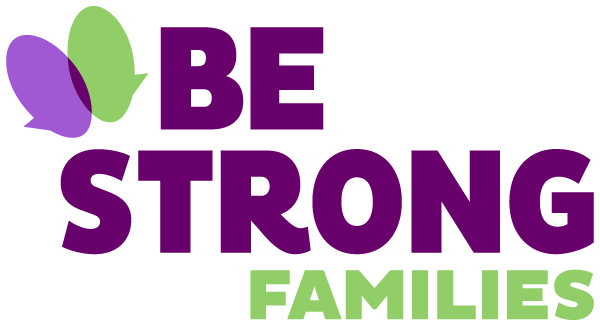A Path Towards Building Authentic Relationships and Creating Institutional Change: Allyship
Carol Mizoguchi returned to Be Strong Families’ “Staying Strong and Positive for Ourselves and Our Children” webinar series on January 8, 2021. This presentation continued the conversation about anti-racism through building authentic relationships and changing institutions. Carol, host Katthe Wolf, and webinar attendees dove deep into the concept of allyship, exploring tools and the mindset necessary for being an effective ally for social justice.
Carol Mizoguchi has over 30 years of experience working in human services, leading major initiatives, and developing and leading high performing teams. In her first webinar with us back in September 2020, Carol discussed vocabulary, first defining racism and then discussing the hierarchical, institutional systems of power that enable racism in all sectors of life in the United States. You can view the recorded presentation here, and check out the written recap here.
This time, Carol began by introducing the Curb-Cut Effect, which originated in the disability justice movement. The Curb-Cut effect derives from the knowledge that when we make accommodations for people in wheelchairs, such as curb cuts, this benefits many others not in wheelchairs, such as: people riding bikes, pushing strollers, using walkers, carrying packages. The concept has important application to anti-racism work because dismantling racism in the United States and worldwide benefits not only specific people of specific races, but all of us. As allies, when we take risks on behalf of people who are marginalized, we also benefit.
For Carol, Allyship is not simply a stance, a value, an identification, it is a way of life. An ally works actively and consistently to fulfill this role. Carol provided a useful way of remembering the key components of Allyship through the acronym CLAIM.
She also shared that privilege does not reside in one race or ethnicity. Using herself and identifying as an African American Christian woman, Carol pointed out that there are contexts in which she might have more privilege than another and, as a committed ally, she would use her privilege to share the risks of the person who was marginalized in that context. For example, at a Prayer Breakfast attended largely by Christians, her Muslim sister might need her advocacy.
Carol also shared tools that we can use to become better allies, including an equity/anti-racism audit, anti-racist strategy charts, and more!
You can view the full webinar and the resulting conversations around Allyship here, and you can find the PowerPoint slides for this presentation on our Webinar Recordings page. Join us for upcoming webinars whenever your schedule allows. If you or your colleagues would like to host a webinar with us, contact us.
